May to EU: Back changes to Brexit dealpublished at 17:13 GMT 7 February 2019
EU leaders reject the PM's call for legally-binding alterations, as the two sides plan more talks.
Read MoreMPs question international trade and then women and equalities ministers
Urgent question on data roaming charges
MPs also debated motions on compensation relating to two lung conditions
After Andrea Leadsom outlined forthcoming business
Statement on review of legal aid and then one on Venezuela
House of Lords holds question session for ministers
Sophie Morris and Richard Morris
EU leaders reject the PM's call for legally-binding alterations, as the two sides plan more talks.
Read MoreWhat happened?
 House of Commons
House of Commons
Parliament
The government will have its next vote on Brexit next Thursday, Leader of the House of Commons Andrea Leadsom announced today.
The prime minister will either come back with a revised deal, or table an amendable motion next Wednesday for debate on Thursday.
The Commons heard statements on legal aid and Venezuela. The legal aid proposal came as the government announced more money for the service starting this spring, following a review of the cuts implemented in 2012 and 2013.
The Commons returns on Monday for what promises to be an historic week in the next round of Brexit votes.
Anti-Social Behaviour Debate
 House of Commons
House of Commons
Parliament
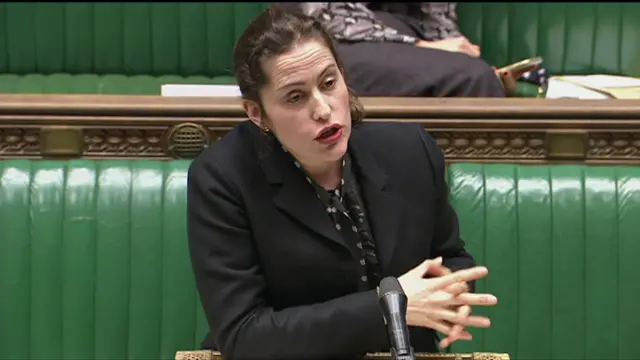 Image source, HoC
Image source, HoCHome Office Minister Victoria Atkins says the debate has been "interesting and thought provoking".
Police and local authorities have a number of powers available to them including community protection orders, Ms Atkins adds, and these have been reformed through the Anti-Social Crime and Policing Act 2014.
These powers are flexible and enable local agencies to tailor their approach to individual circumstances of anti-social behaviour, she says.
On the issue of police funding, Ms Atkins says cuts were made "to address the mess we were in economically because of the Labour government".
MPs must hold their Police and Crime Commissioners (PCCs) to account on how they are spending their funding reserves, she adds.
Anti-Social Behaviour Debate
 House of Commons
House of Commons
Parliament
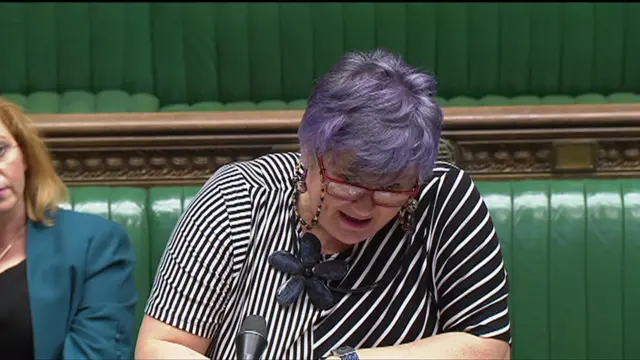 Image source, HoC
Image source, HoCOpposition spokesperson Carolyn Harris says while anti-social behaviour often doesn't cause physical harm to a person, it causes "emotional and psychological damage".
She says that "helplessness" and "poverty" causes people to act in anti-social ways.
She warns that pension grants from government are not enough to match the shortfall of pension liabilities for police forces.
"However the government tries to manipulate the figures, central government funding for local police forces has been cut for nine consecutive years," she states.
"Public safety should be a priority," she says, "it doesn't need to be like this."
Theresa May says Donald Tusk's comments "were not helpful and caused widespread dismay" in the UK.
Read MoreAnti-Social Behaviour Debate
 House of Commons
House of Commons
Parliament
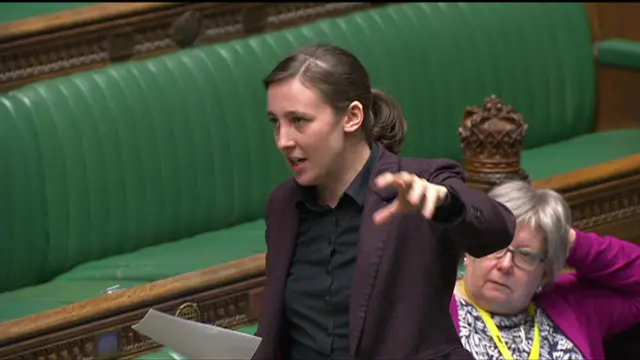 Image source, HoC
Image source, HoCSNP MP Mhairi Black says Scotland has had the anti-social behaviour act since 2004 and that "a partnership approach, with the police, local authorities and the courts service, is key to make positive change".
These measures have been having a positive impact in Scotland, she says.
Everyone has the right to feel safe in their own home, Ms Black says, and the support that local organisations provide is "essential, and should be supported more".
Individuals should be treated as someone that matters, not something that needs to be resolved, she adds.
"It's about understanding people and where they are coming from," she concludes.
Anti-Social Behaviour Debate
 House of Commons
House of Commons
Parliament
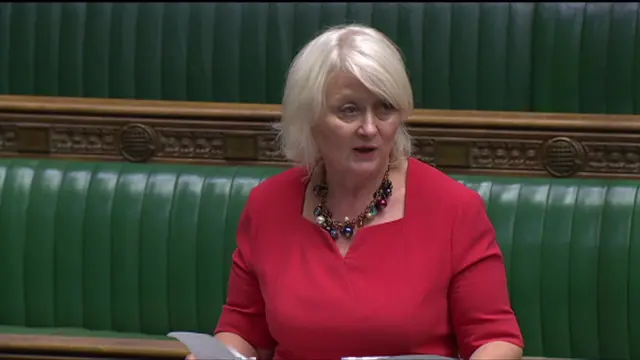 Image source, HoC
Image source, HoCLabour's Siobhain McDonagh says "the difficulties of suburban shopping centres have become so much worse" and she says that shop fronts are being vandalised even when the local town centre has been regenerated.
This means that town centres become "simply an unpleasant place to shop".
She says that "disgraceful" anti-social behaviour often goes "unchecked" because police forces do not have the resources they need.
"There is no substitute for a visible police presence in a community," she says.
Pontypridd MP Owen Smith says he and a "lot of people" are considering leaving the party.
Read More House of Commons
House of Commons
Parliament
Labour's Martin Whitfield says he knows some of the teenagers who go around in his constituency, because he has taught them, but sometimes a group mentality prevails. He says there are ways to counter this.
He points to an example of a playpark being established in his constituency, and the older children were shown how important the equipment was for their younger brothers and sisters.
He says he knows that the young people went to others and warned them not to damage the park equipment after that experience.
"We need to re-empower our communities and society," he says, pointing to the need for more funding and more power, but also that more connections are made in communities. "If you become disconnected...why should you buy into the society you find yourself in?"
Anti-Social Behaviour Debate
 House of Commons
House of Commons
Parliament
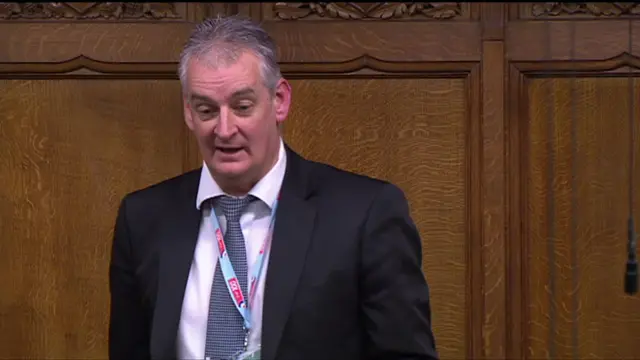 Image source, HoC
Image source, HoCLabour MP Graham Jones says the government seem to care more about facilities than they do about having enough officers on the street to help support and protect people.
"This is about staff, communities, people and neighbourhoods," Mr Jones says, noting that the government "cannot be serious" about fighting anti-social behaviour when they are making police cuts.
Home Office Minister Victoria Atkins says she "concentrates on people rather than bricks and mortar".
Mr Jones says: "You cannot have a progressive solution to anti-social behaviour if you strip out police officers."
Anti-Social Behaviour Debate
 House of Commons
House of Commons
Parliament
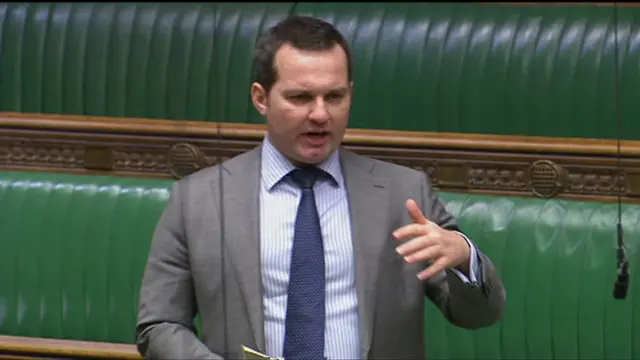 Image source, HoC
Image source, HoCConservative MP Chris Green says the additional money for the police is welcome, but "we would like more from where that came from".
There is a sense that there is an inability and an unwillingness to deal with anti-social behavioural concerns, Mr Green says, and that over a time they will get worse.
He calls for more resources "to be able to nip these issues in the bud".
Labour MP Siobhain McDonagh says under Tony Blair there was huge action to tackle the issue of anti-social behaviour: the introduction of the Asbo, more police on the streets, debates on dealing with anti-social tenants.
"We are going backwards on all these things, we are re-inventing the wheel," she adds.
Anti-Social Behaviour Debate
 House of Commons
House of Commons
Parliament
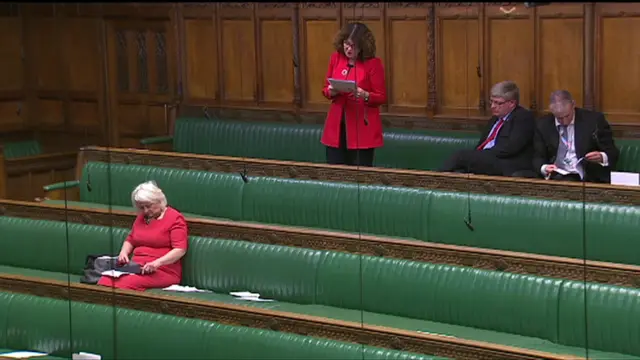 Image source, HoC
Image source, HoCLabour's Diana Johnson is opening the debate on anti-social behaviour in the UK.
"Anti-social behaviour has become one of the biggest issues in my constituency," she says.
She states that 40% of people now think that anti-social behaviour is a problem in their area, up from 25% in 2015.
She says that young people are becoming "difficult to reach" as they are members of an "austerity generation". She adds that children in her constituency are scared of crime and anti-social behaviour.
Policing budgets in Humberside have dropped by 31% since 2010, and police staffing levels are now down to numbers not seen since the 1970s, she adds.
Anti-Social Behaviour Debate
 House of Commons
House of Commons
Parliament
Labour MP Diana Johnson is now introducing her backbench business debate on anti-social behaviour.
Tackling disadvantage in early years statement
 House of Commons
House of Commons
Parliament
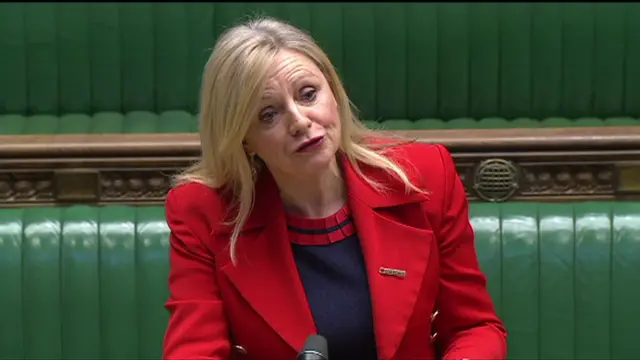 Image source, HoC
Image source, HoCShadow education minister Tracy Brabin says she would like to give her support to proposals to upskill early years staff, and questions Mr Halfon on whether this should be funded by the government in disadvantaged areas.
She calls for a "bridging loan" from the government to maintained nursery schools if their financial future is not laid out by the end of the financial year.
Tackling disadvantage in the early years statement
 House of Commons
House of Commons
Parliament
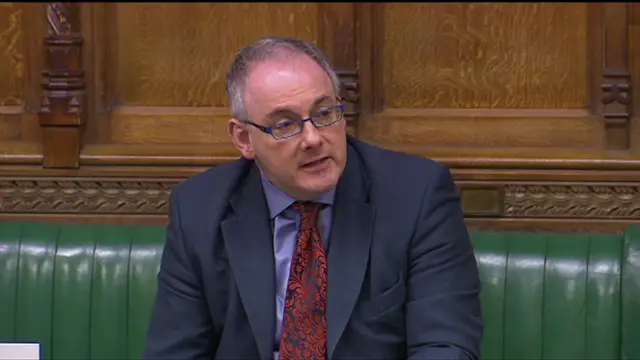 Image source, HoC
Image source, HoCEducation Committee Chair Robert Halfon is now introducing his committee's report on tackling disadvantage in the early years.
Mr Halfon says the current policy towards the early years is "confused" and damaging disadvantaged children, particularly with the 30 hours childcare policy which is having "perverse consequences".
"It offers more childcare to more affluent parents," he adds, referring to this as "unfair" and "a social injustice".
Maintained nursery schools are struggling because there is not a funding that guarantees them to survive after this year, Robert Halfon says, noting the report urges the government "to commit to fully funding maintained nursery schools by the end of the financial year".
"We must remove barriers to progression for the most disadvantaged," he says, noting that apprenticeships should be more readily available to all and "less confused".
"If we improve early years care, we improve the lives of our children," he says, adding that the area is "so incredibly important".
Select Committee report
 House of Commons
House of Commons
Parliament
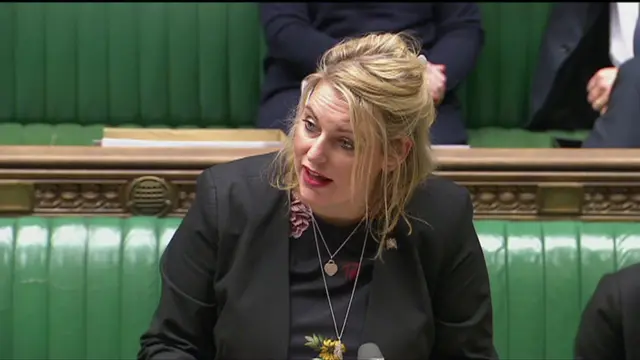 Image source, HoC
Image source, HoCDigital, Culture, Media and Sport Minister Mims Davies says the government recognises social media "can bring huge benefits" to children, but also may bring harms.
She says she welcomes this report from the committee, and will consider the findings of the report in the government's forthcoming white paper on social media.
Norman Lamb says he encourages the government to produce a white paper on the issue.
Social Media Report Statement
 House of Commons
House of Commons
Parliament
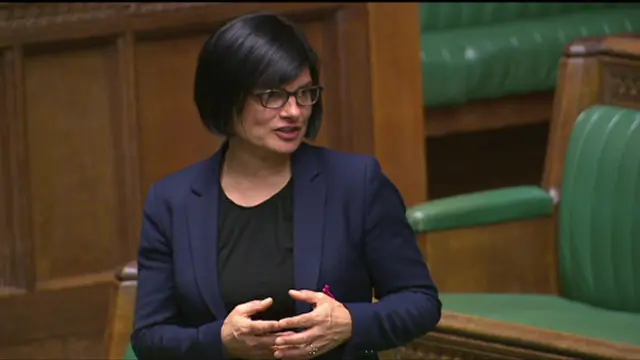 Image source, HoC
Image source, HoCLabour MP Thangam Debbonaire says social media can also be a powerful force for good, and calls on the committee to hold a further enquiry into this.
Chair of the Science and Technology Committee Norman Lamb says it is important that MPs have a balanced view of social media, but that the risks and harms must also be recognised.
Conservative MP Trudy Harrison says vlogger Zoe Sugg was like "the virtual big sister" in her household, and has provided her children with guidance and support. She agrees with Ms Debbonaire that more work should be done into the positive benefits of social media.
Select Committee report
 House of Commons
House of Commons
Parliament
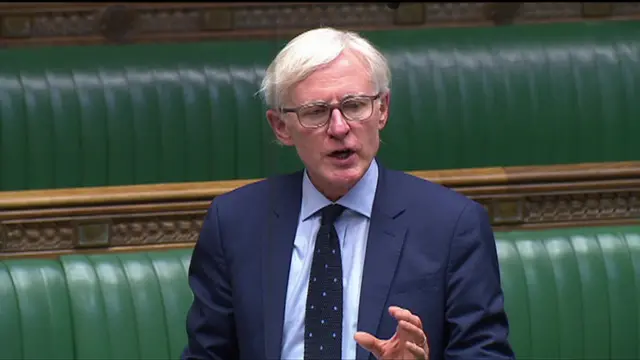 Image source, HoC
Image source, HoCChair of the Science and Technology Committee, Norman Lamb, is introducing his select committee report on the impact of social media on young people, external.
He says that social media is able to link friends around the world and connect with others on issues that matter to them, but "at its worst, social media has been linked to cyber bullying, grooming" and other problems, although these issues are not caused by the services themselves.
"Researchers lack access to key data on social media and its use" as social media companies keep this data to themselves, he says.
The report calls for anonymised, high-level data to be made available to researchers on social media use.
"The lack of good quality evidence does not give us licence to sit back and do nothing," he states.
"Arguable, we have waited far too long" for social media companies to tackle the abuse on their platforms, he adds.
Venezuela statement
 House of Commons
House of Commons
Parliament
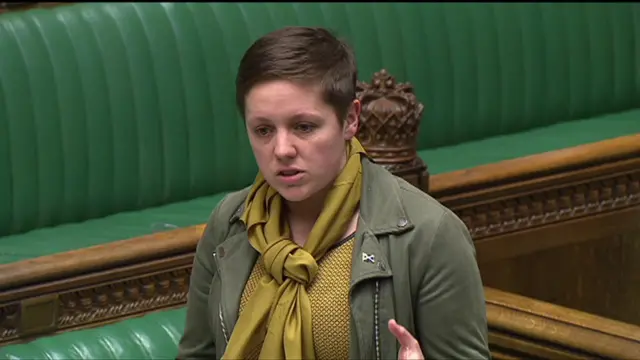 Image source, HoC
Image source, HoCThe SNP's Kirsty Blackman says that the world is at "risk" of having "a lost generation of Venezuelans".
In the end, she says, it is for the Venezuelan people to choose their own leaders. She asks what steps are being taken to strengthen Venezuela's democratic institutions.
Sir Alan says "we are discussing how we can anticipate the way in which aid can be delivered" once the country is again "opened up".
He says it is "likely" that when the regime leaves power that the humanitarian crisis is "far more severe" than currently thought.
"They do have a constitution," he says, "the problem is that Maduro has not upheld the constitution."
Venezuela statement
 House of Commons
House of Commons
Parliament
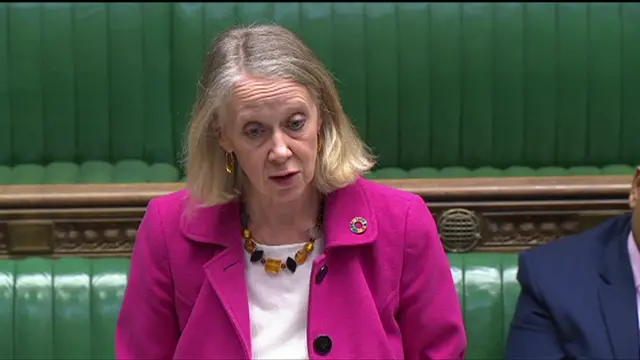 Image source, HoC
Image source, HoCShadow foreign minister Liz McInnes says she hopes that the UK will rule out military intervention or outside interference in Venezuela. She says the economic and humanitarian crisis in the country is "utterly avoidable".
There are "desperate shortages of food, medicine and other essentials", and there are refugees in their millions leaving the country, she states. The million people leaving Venezuela for Colombia have put "at risk" the peace process in Colombia, she adds.
"The future of Venezuela must be a matter for Venezuelans," she says.
Sir Alan Duncan replies that the Maduro regime has "destroyed the prosperity and well-being of an entire country and its people".
"This isn't about outside influence...this is about empowering the legitimacy of Venezuelans inside Venezuela themselves," he adds.